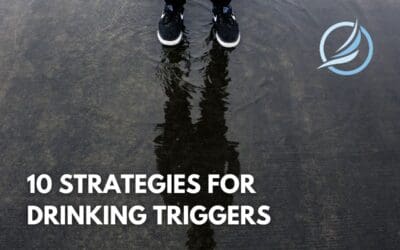“Am I an alcoholic quiz” is what someone with a drinking issue might type into their search bar if they are questioning their habits. Typing this question leads to so many sources of blogs, quizzes, and treatment facilities. Unfortunately, how could you really know you’re either an alcoholic or a heavy drinker, abusing alcohol, or experiencing alcohol addiction? What do all the terms even mean?
What is an Alcoholic?
According to the National Institute on Alcohol Abuse and Alcoholism (NIAAA), an alcoholic is a person medically diagnosed with alcohol addiction, alcoholism, or alcohol use disorder (AUD).
NIAAA defines heavy alcohol use as more than 4 drinks on any day for men or more than 3 drinks for women.
What is Alcohol Use Disorder?
The NIAAA defines AUD as “chronic relapsing brain disorder characterized by an impaired ability to stop or control alcohol use despite adverse social, occupational, or health consequences.” AUD is diagnosed by NIAAA based on the following questions;
In the past year, have you:
- Had times when you ended up drinking more, or longer than you intended?
- More than once wanted to cut down or stop drinking, or tried to, but couldn’t?
- Spent a lot of time drinking? Or being sick or getting over the aftereffects?
- Experienced craving — a strong need, or urge, to drink?
- Found that drinking — or being sick from drinking — often interfered with taking care of your home or family? Or caused job troubles? Or school problems?
- Continued to drink even though it was causing trouble with your family or friends?
- Given up or cut back on activities that were important or interesting to you, or gave you pleasure, in order to drink?
- More than once gotten into situations while or after drinking that increased your chances of getting hurt (such as driving, swimming, using machinery, walking in a dangerous area, or having unsafe sex)?
- Continued to drink even though it was making you feel depressed or anxious or adding to another health problem? Or after having had a memory blackout?
- Had to drink much more than you once did to get the effect you want? Or found that your usual number of drinks had much less effect than before?
- Found that when the effects of alcohol were wearing off, you had withdrawal symptoms, such as trouble sleeping, shakiness, irritability, anxiety, depression, restlessness, nausea, or sweating? Or sensed things that were not there?
AUD can be diagnosed as mild, moderate, to severe depending on the number of above criteria met.
Other methods of screening to recognize alcoholism provided by the Assessing Alcohol Problems: A Guide for Clinicians and Researchers are the following:
CAGE
C: Have you ever felt you should cut down on your drinking?
A: Have people annoyed you by criticizing your drinking?
G: Have you ever felt bad or guilty about your drinking?
E: Have you ever had an eye-opener where you drink first thing in the morning to steady your nerves or to get rid of a hangover?
T-ACE
T: What’s your tolerance? How many drinks does it take to make you feel high?
A: Have people annoyed you by criticizing your drinking?
C: Have you ever felt you should cut down on your drinking?
E: Have you ever had an eye-opener where you drink first thing in the morning to steady your nerves or to get rid of a hangover?
These methods are similar in question as they assess alcohol problems during a lifetime. Answering positively to two or more questions does raise a concern and further assessment should be sought by medical professionals.
How Accurate Are the Online Alcoholic Quizzes?
Online quizzes are enjoyable, however, taking any online “am I an alcoholic” quiz cannot attest to any disorder. Online alcoholic quizzes cannot give you the correct medical diagnosis that is needed for the alcoholic use disorder. Although they may be helpful by making you aware that your alcohol intake is excessive and treatment should be sought after, they are not accountable diagnoses.
In order to properly question drinking habits or suspected alcohol abuse, speak with a medical professional who can better assist you with resources and steps to recovery.
Sources:
https://pubs.niaaa.nih.gov/publications/arh28-2/78-79.htm
https://www.niaaa.nih.gov/alcohol-health/overview-alcohol-consumption/alcohol-use-disorders
https://www.niaaa.nih.gov/alcohol-health/overview-alcohol-consumption/moderate-binge-drinking


































